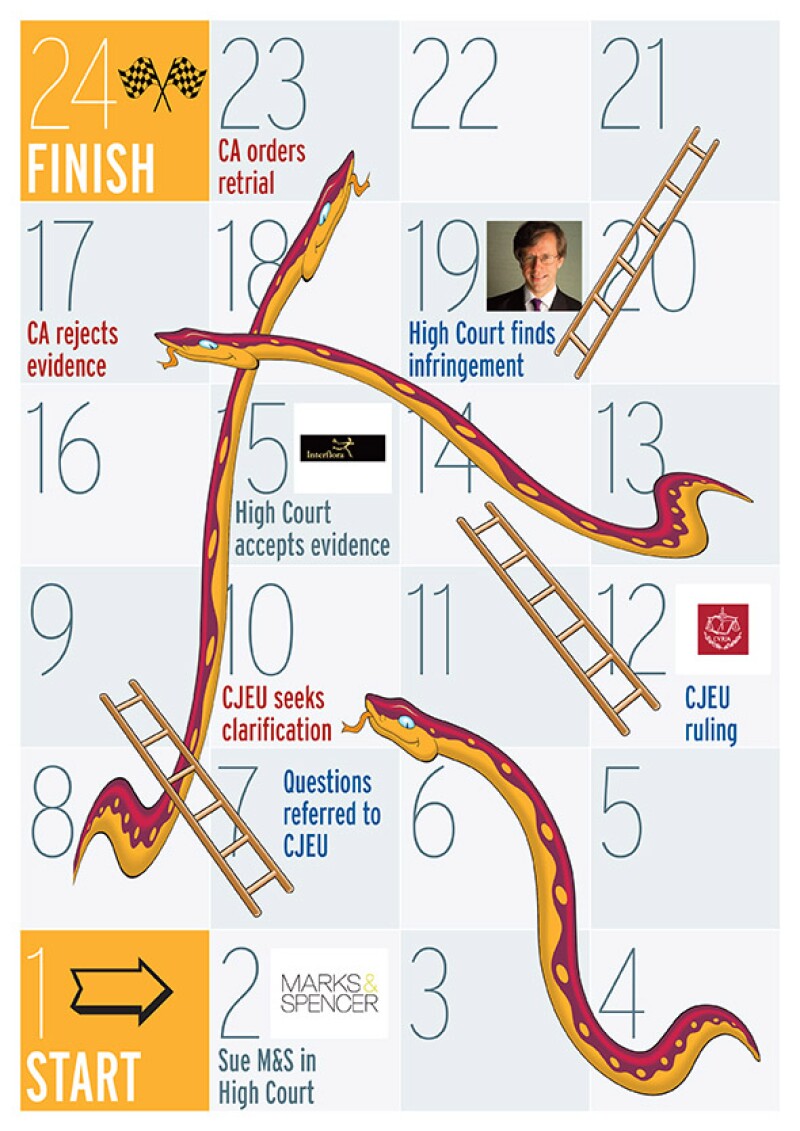
There was much food for thought once again at the Fordham IP Conference, held this year in Cambridge, UK, last week. It was a particular pleasure to moderate once again a discussion on recent trade mark developments in the EU, which covered numerous recent cases as well as (in what was apparently a first for Fordham) a presentation on passing off by Mr Justice Charleton of the Supreme Court of Ireland.
It fell to Professor Spyros Maniatis to summarise the Interflora AdWords saga – he had roughly one minute for every year of the litigation (and as the computer screen ticked down to zero, I was counting every second).
Maniatis discussed the development of trade mark law on keyword advertising in both the US and EU and then focused on the grounds on which the Court of Appeal reversed the first instance judge in Interflora and (highly unusually) ordered a retrial.
These were (1) that the judge had wrongly held that the onus of proving that there is no risk of confusion in cases such as this lies on the third-party advertiser rather than the trade mark owner, and (2) that he had introduced the “unnecessary and potentially misleading gloss” of initial interest confusion from US law.
It so happened (as is often the case at Fordham) that there was someone intimately acquainted with the case in the second row of the audience: on this occasion, Mr Justice Arnold, the first instance judge whose opinion was overturned by the Court of Appeal.
In an intervention, Arnold commented on both the burden of proof and initial interest confusion.
Regarding the former, he pointed to his recent decision in Supreme Petfoods where he discussed in detail the CJEU case law on infringement under Article 5(1)(a) of the Directive and in particular the condition that the alleged infringing sign “must affect, or be liable to affect, one of the functions of the trade mark”.
As he put it with typical understatement in that opinion, this condition “gives rise to considerable difficulty in understanding and applying the law”. Despite a string of CJEU cases, it is unclear who bears the burden of proving this condition is met. Is it the trade mark owner, or the defendant, or some combination of both, and does it depend on the type of case or which function is affected?

In Supreme Petfoods, Arnold (left) concluded that a CJEU reference was clearly needed “preferably sooner rather than later” but was not necessary in that particular case.
On the second point, regarding initial interest confusion, Arnold was robust in the face of the Court of Appeal’s criticism, noting that it is “an inescapable fact” of European trade mark law (going back at least to L’Oreal v eBay) that you can infringe a trade mark merely by placing an advertisement.
As he argued: does that not amount a doctrine of initial interest confusion?
The Interflora baton has now been passed to Mr Justice Birss (who gave a judgment refusing an interim injunction in December last year). Both parties still seem to have a hearty appetite for this litigation (and, judging from some of the costs numbers mentioned in court hearings, bottomless wallets). So further developments are expected. (For a tongue-in-cheek illustration of the ups and downs on this litigation so far, see our snakes-and-ladders graphic).
Whether it’s in Interflora or another case, it seems that these two questions will be heading to Luxembourg for further clarification before too long.









